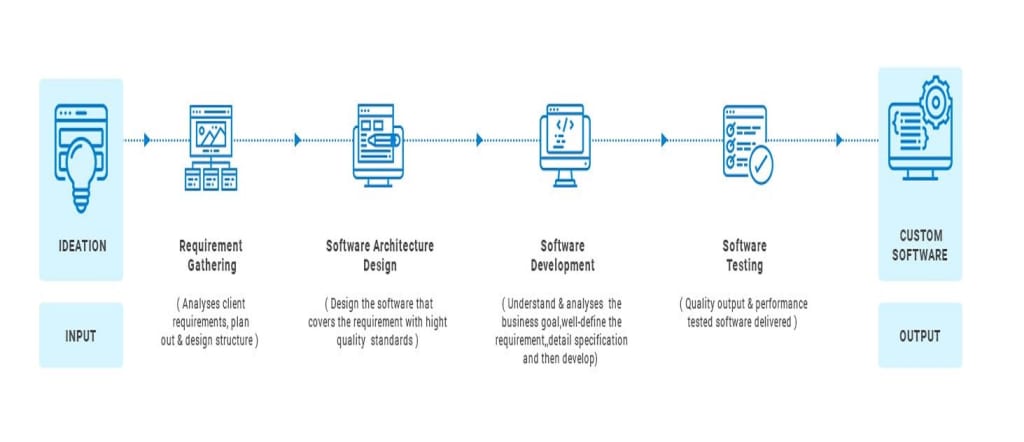Advancing Healthcare Through Software Development
Elevating Healthcare with Innovative Software Solutions

In the ever-evolving landscape of healthcare, software development has emerged as a driving force behind improved patient care, streamlined operations, and enhanced decision-making. The development of healthcare software solutions has revolutionized the industry by delivering powerful tools that support healthcare professionals, hospitals, and patients in numerous ways. In this article, we will delve into the world of healthcare software development, examining its profound impact on the healthcare sector and the key considerations involved in creating innovative healthcare software.
The Evolution of Healthcare Software Development
Healthcare software development, also known as health software development, has gained significant traction in recent years. This field encompasses a wide range of applications, from Electronic Health Records (EHR) systems to diagnostic and treatment tools, telemedicine platforms, and healthcare management software.
Benefits of Healthcare Software Development
The development of healthcare software brings a host of advantages to the healthcare industry:
Efficiency and Productivity: Healthcare software streamlines administrative tasks, reducing paperwork and enhancing the overall efficiency of healthcare facilities. This allows healthcare professionals to dedicate more time to patient care.
Patient Data Management: Electronic Health Records (EHRs) centralize and organize patient information, making it readily accessible to authorized personnel while maintaining data security and privacy.
Telemedicine: Software development has facilitated the growth of telemedicine, allowing patients to consult with healthcare providers remotely. This is especially crucial in reaching underserved areas and responding to public health emergencies.
Clinical Decision Support: Software tools provide healthcare professionals with decision support systems, aiding in the interpretation of diagnostic tests and the formulation of treatment plans.
Data Analytics: Software solutions help analyze vast amounts of patient data, enabling healthcare providers to identify trends, make informed decisions, and improve patient outcomes.
Key Considerations in Healthcare Software Development
Developing healthcare software requires careful consideration of various factors to ensure the highest level of quality and safety:
Regulatory Compliance: Healthcare software developers must adhere to regulatory requirements such as the Health Insurance Portability and Accountability Act (HIPAA) in the United States and the General Data Protection Regulation (GDPR) in Europe. Compliance ensures patient data privacy and security.
Interoperability: Healthcare software should seamlessly integrate with other systems and applications, promoting efficient data exchange and coordination of care.
User Experience: User-friendly interfaces are essential in healthcare software to ensure that healthcare professionals can quickly navigate the system and provide the best care for their patients.
Scalability: Healthcare software must be scalable to accommodate the growing volumes of data and the changing needs of healthcare facilities.
Data Security: Robust encryption, access controls, and regular security audits are vital to safeguard sensitive patient information from data breaches.
Testing and Validation: Rigorous testing, validation, and quality assurance processes are essential to ensure the software's accuracy and reliability in a clinical setting.
Continuous Updates and Maintenance: Regular updates and maintenance are necessary to keep healthcare software up-to-date and secure. This includes addressing software vulnerabilities and staying compliant with changing regulations.
The Future of Healthcare Software Development
The future of healthcare software development holds exciting possibilities and innovations:
Artificial Intelligence and Machine Learning: AI and machine learning will play a significant role in healthcare software development, supporting predictive analytics, medical image analysis, and personalized treatment recommendations.
IoT Integration: The Internet of Things (IoT) will become more integrated into healthcare software, connecting medical devices, wearables, and monitoring equipment to central healthcare systems.
Blockchain for Data Security: Blockchain technology will continue to provide advanced data security and privacy features for healthcare software, enhancing patient data protection.
Patient-Centered Care: Healthcare software will increasingly focus on empowering patients to manage their health, fostering patient engagement, and improving communication between patients and healthcare providers.
Population Health Management: Healthcare software will play a crucial role in population health management, enabling healthcare organizations to address the unique needs of specific patient groups.
In conclusion, healthcare software development has brought about significant advancements in the healthcare industry, benefiting patients, healthcare professionals, and institutions alike. The ongoing evolution of healthcare software will continue to shape the future of healthcare, promising improved patient outcomes and greater efficiency in delivering care. It is vital that software developers, healthcare organizations, and regulatory bodies work together to ensure the development and implementation of software solutions that prioritize patient safety, data security, and improved healthcare delivery.
About the Creator
shawn davidson
I am a Healthcare enthusiast providing healthcare-related business services with modern tech solutions.






Comments
There are no comments for this story
Be the first to respond and start the conversation.